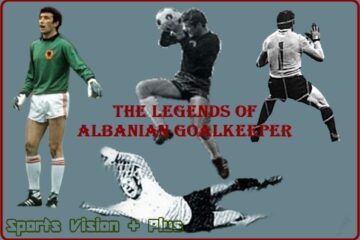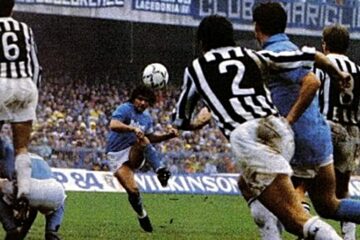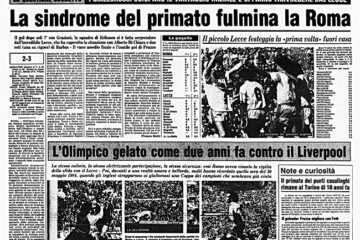The sensational escape of Vllaznia players!

When sports are connected to politics.
Two sides of the same coin, confrontation with history, different cases and events that could have been avoided!
To address this event that occurred in the late 80s, we need to travel back in time to a period when Albania was isolated from the world, when everything was forbidden and hindered by what happened outside the borders of the one-party state of the communist leader Enver Hoxha.
And conversely, because of this isolation, perhaps even the world did not really know who the Albanians were, or as it turned out after the opening towards democracy, after the 90s, did not manage to create clear and often erroneous ideas in generalizing the Albanian “sin” due to some cases and actions of individuals!
Since 1945, Albania under communist rule closed its borders with its neighbors and after 1948 the closure began to become even more hermetic, while in the early 1950s, the border became practically impassable. It was stated clearly: Attempting to escape is considered treason against the homeland, and an act punishable by 10 to 25 years of imprisonment!!!
There were cases when such attempts turned into tragedies or ended with the death penalty!
The families of those who escaped or attempted to do so were sent to various internment camps or to the most isolated areas of the country, with corrective labor as punishment that the entire family had to suffer as a result of the member who had managed to escape.
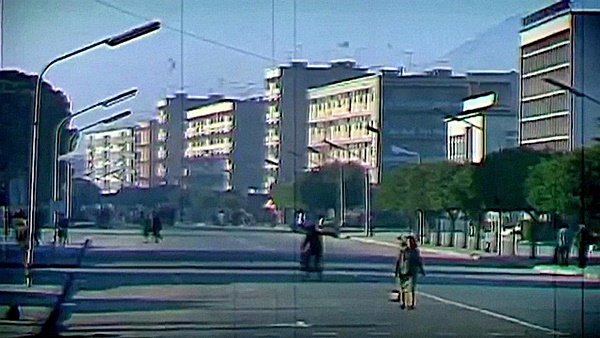
The largest northern city, Shkodra, at that time
1 .
In November 1987, at the dawn of a new day, two footballers from Vllaznia Shkodra, who were considered talents of the team, goalkeeper Arvid Hoxha and striker Lulzim Bershemi, had decided to leave a hotel in the center of Athens where the team was staying, along with the guard who accompanied them.
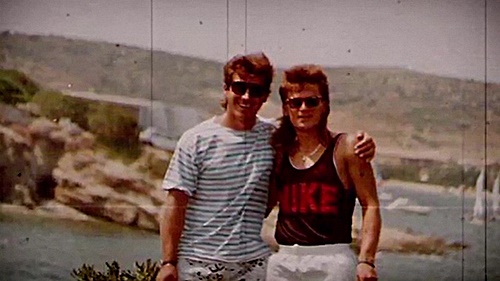
Arvid Hoxha and Lulzim Bershemi
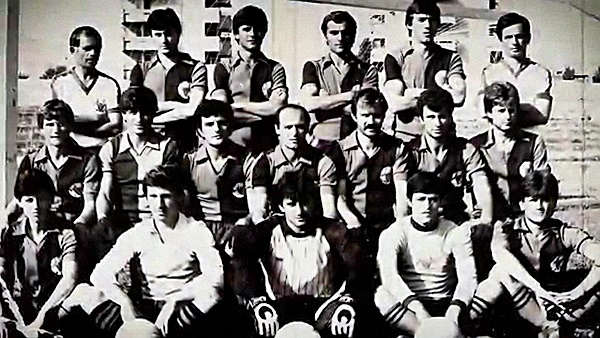
Vllaznia Team of 1987
However, among football players, this case of escape was not the first nor the last, not only in communist Albania, but also in the countries of the Eastern Bloc. In the fall of 1956, after the Hungarian revolution broke out, the news was given that the star footballer of the Hungarian national team, Ferenc Puskás, had fled in front of Soviet tanks, moving to Spain to Real Madrid. Another famous player, Ladislav Kubala, also fled to Spain, but moving to Real’s eternal rival, “Barcelona”! What was happening in Albania at that time? Did Albanian football players or athletes have knowledge and influence over such events?
The escape of Albanian players began in the early 1950s. Although it has been proven, even by the testimonies of the players themselves, that they had a much better social life compared to the people, they were still tempted for other reasons to escape to the free world even though they knew the consequences that could be taken against their families. Thus in 1950 is the case of the escape of two Albanian footballers who sought political asylum in Turkey.
Immediately after the international matches of the Albanian national team against Romania and Bulgaria, while returning from the sea route to the Dardanelles, two of the talents of that time, Sulejman Vathi and Bahri Kavaja, jumped off the ferry while escaping, and Vathi was even killed during this attempt.
Another sensational case is that of 1956, of the Dinamo goalkeeper, Qemal Vogli, who escaped to Berlin and after wandering around Europe for a while, returned from Albanian security with the help of the STASI “repentant” in Albania. The legendary goalkeeper was sentenced to 15 years in prison, of which he served only 5, but was sentenced to not play as a footballer for the rest of his life.
2.
Vllaznia of the 80s was one of the best teams in the country, a fact that is also evidenced by the gathering of some of its players with the “National” teams representatives of “Shpresa” (Under 21 and Under 17), it had won the Republic Cup several times, the National Championship and was already undoubtedly rivaling the other two best teams in the country, Partizan and Dinamo.
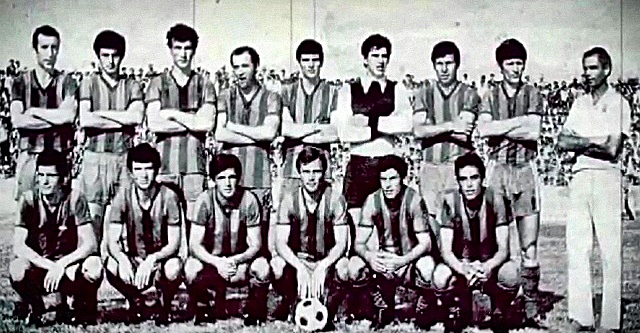
Vllaznia Team of 1980-1981 The winner of Republic Cup
In the team there was no more Bizi, Zhega or R. Rragami, but in its ranks there were excellent elements of Albanian football, although they did not manage to completely replace goalkeeper Pavlin Ndoja with Gjergj Kushe, Genc Boshnjaku or Isa Sukaj.
In defense, Said Canga, Hysen Dedja and Hysen Zmijani stood out, in midfield, the already confirmed “Wolf” Ferid Rragami, Luan Vukatana, Ferid Borshi, a Hansi Myler of the Albanian version, Fatbardh Jera, without forgetting the attack with Roland Luci and Fasli Fakja. To this group at the end of the 80s, goalkeepers Agim Maliqati, (son of the legend Sulejman Maliqati) Avenir Dani and Arvid Hoxha were added, defenders Rudi Vata, Bepin Pali, Isak Pashaj and Kujtim Shaba, midfielders Vitor Briza, Nikolin Thana, Ardian Bushati as well as strikers Bershemi, Kepa, Barbullushi, Lacja, Alibali….
The coach of Vllaznia was the universal player, the undisputed champion Ramazan Rragami who would be followed by another great name in football, Astrit Hafizi.
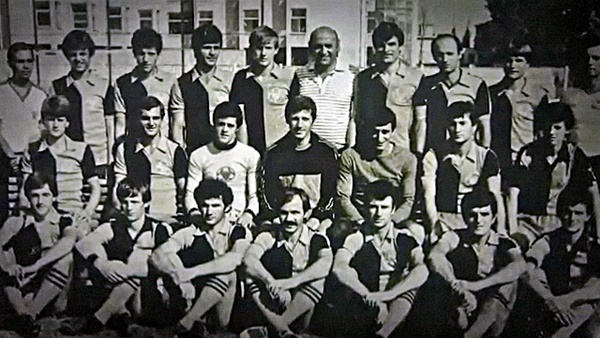
Vllaznia Team of 1987-1988
Vllaznia, after winning the Republic Cup in 1987, would now represent Albania in Europe in the “Cup of the Winners Cup” trophy. The strength of this team would be felt first by “Sliema”, although a club from a country like Malta, with all due respect, has no traditions in football.
In Shkoder, Vllaznia wins 2-0 with goals from Bushati (`53) and Jera (`68); while in Malta, Pashaj (`13), Vukatana (`59), Rragami (pen. `70) and Fakja (`83) score a resounding 4-0!
In the second round, on October 21, 1987 in Shkoder, Vllaznia, in the presence of 15,000 enthusiastic fans, loses to Rovaniemi of the Finland 0-1 with a goal scored in the 27th minute by Polack. The attempts of the Shkoder team to equalize or overturn the result are not successful.
The same result (0-1) also in the return match in Rovaniemi on November 3, and Polack is the scorer again (`47).
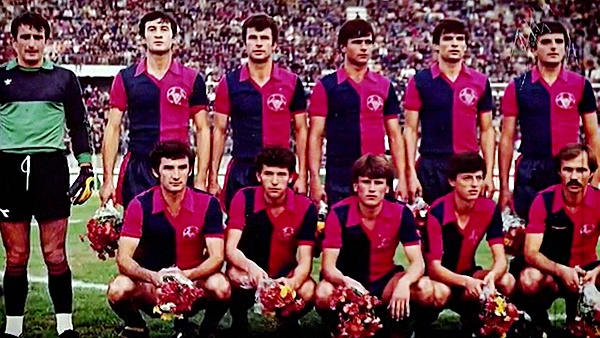
One of 1987 Vllaznia Team…
It should not be left without mentioning that it was a halved team of Vllaznia that arrived in Rovaniemi, located almost in the Arctic Circle, 750 km from the Finnish capital Helsinki.
Shortly before leaving for Finland, it was missing defender Vata and the dangerous center forward Fakja, who was even taken off the bus that was preparing to leave from Tirana. It is not clear why Vata was “punished” who a year later would defend the colors of the Dinamo team (he together with other Vllaznia player, Vitor Briza).
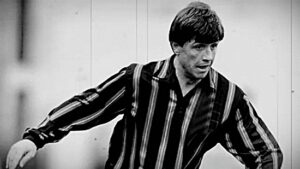
The center back Rudi Vata
Thus, Vllaznia leaves the scene and on the way back to Shkoder, the event that will mark perhaps one of the most sensational escapes will occur.
3.
Arvid Hoxha and Lulzim Bershemi.
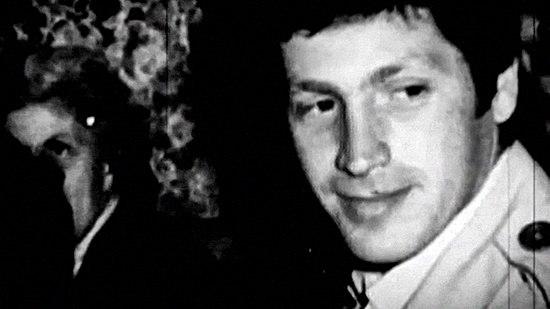
The Goalkeeper talent, Arvid Hoxha
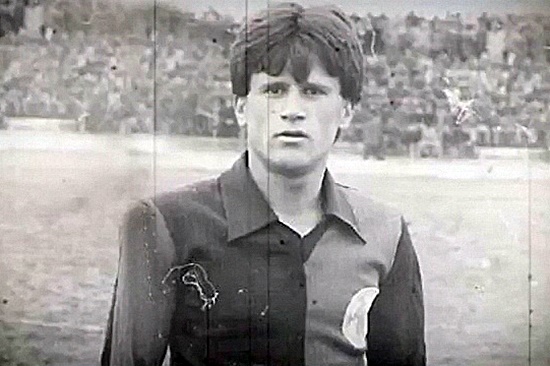
One of Vllaznia`s talent, Lulzim Bershemi
They were friends, but from the similarity they were two different points, two ends of a magnetic field, but both were talents of Shkodra football. While Hoxha, was characterized as a serious and calm guy, Bershemi, was a lively and active guy, undoubtedly a promising player for the flair he enjoyed at that time. Athletically fast, a dribbler with a technique and use of the ball with both feet, a scorer even though he was short stature, he stood out in every match. Bershemi will also receive baptism from the well-known Buducnost player Dejan Savicevic` when in 1986 Vllaznia will play a friendly match in Shkodra!
But had these young men made an escape plan beforehand? Arvid Hoxha would later testify in an interview that he did not see any future in Albania and that something was on his mind….
In a report of the Shkoder District Party Committee it is written as follows:
“On 1-11-1987, the “Vllaznia” football team left to Finland for the return match with the “Rovaniemi” team.
On their way back, in a Helsinki store, four Vllaznia footballers were caught by the regional police stealing loot. The police made the appropriate reports for each of them and at the instigation of the team leaders they were let go. The leaders tried to calm the team and the individuals themselves about this problem!”

So, “they were caught stealing “… this fact is quite evident about the escape, because among those four were also Hoxha and Bershemi, along with Shaba and Vukatana.
For this low action, the former first secretary of the Shkoder district, comrade Muho Asllani, among other things, would express himself like this:
… “these people went and got dirty in the Helsinki supermarket. They took loot supposedly to try it on in the fitting room, they entered with one pair of tracksuits and came out with several pairs on. Their low actions were filmed on camera. Now tell me, is there anything more shameful than such a gesture? First of all, to lower the personal dignity, of your family, of your people… it is so shame”!
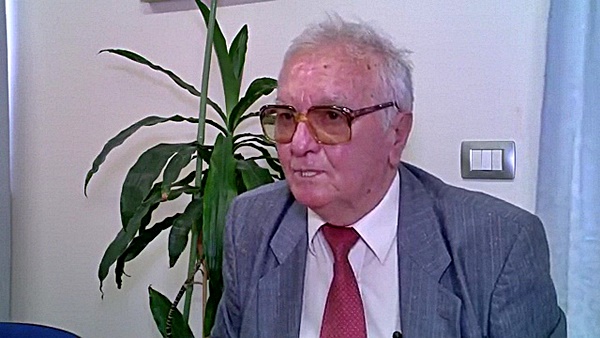
Muho Asllani, first Secretary of the Shkoder District Party!
And I believe that there is no normal person who would not give the right to the member of PPSH, regardless of his political convictions, this is a low action that anyone without any distinction, even a simple person, will condemn it.
With the intervention of the management staff and the Albanian embassy in Helsinki, the four players are released and everything is apparently closed with a fine that the embassy itself pays.
During the return trip, the tension had continued seemingly calmly among those four footballers who were the protagonists of the event, apparently taking the scale of an anxiety, as to what punishment could await them in Albania.
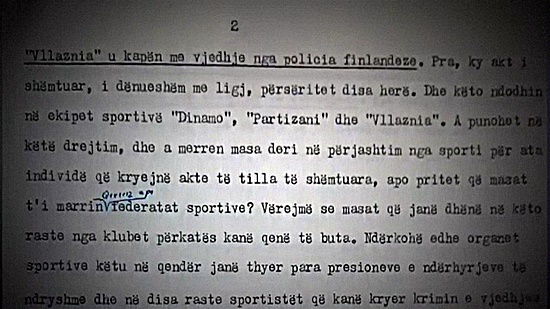
Arvid Hoxha and Lulezim Bershemi must have imagined what might await them in Tirana. The calm had been lost between the two. The whole event had now taken on vast psychological dimensions that needed to be resolved.
From Helsinki, the Vllaznia team stops in Budapest. It is here that Hoxha and Bershemi begin to make their plans to avoid returning to Albania, and Hoxha even says later in an interview:
….”I told Bershemi that I will not return to Albania to become a pawn of the communist system”!
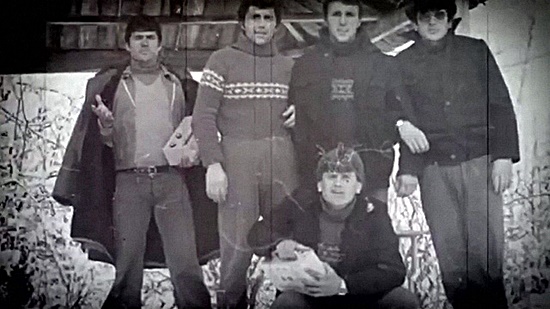
A group of Vllaznia players off the field!
Meanwhile, Hoxha also talks to his other old friend, Kujtim Shaba, who does not accept it, telling him that “the only extreme measure that will be given to us is exclusion from football”! Shaba, thinks that he is somewhat protected, becouse among other things, he married the daughter of the first secretary of the Party…
Also, both Hoxha and Bershemi come from the best families in Shkodra from a political point of view. Bershemi’s father was a member of the Albanian People’s Party (PPSH) and his cousin was in the district Party organization, while Hoxha’s father was an employee of the Party’s Executive Committee for the Shkodra district, one of the most distinguished and exemplary of the Party.
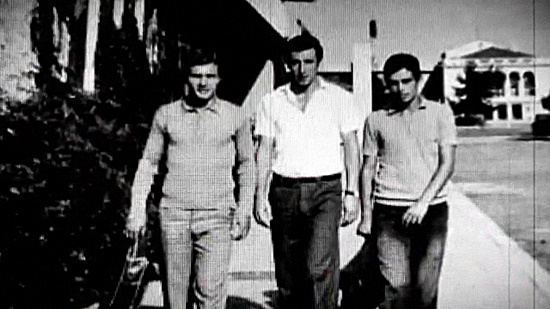
Upon the team’s arrival in Athens, they settled in the Hotel “Athinasi”, in the center of the Greek capital city “. This hotel, where the event took place, was located between two important embassies at the time. To its right was the American embassy, opposite that of the former Yugoslavia, and not far from it was that of Albania.
After rooms were allocated for each of the two players, with Bershemi assigned to Kepa, while Hoxha was assigned to Shaba, that evening was not at all peaceful, on contrary full of fever, tension where courage and the temptation of folly were intertwined.
What really happened that night? Why did the two friends Hoxha-Bershemi switch rooms that night? It will be Bershemi the one who will deceive Ilir Kepa by telling him that he was assigned by the leaders to a room with Shaba…
Bershemi wanted that night to be together in a room with his friend Hoxha to carry out their plan of escape
However, the Hoxha-Bershemi duo, at around 2 am, find a secret exit from the hotel through the terrace, without being noticed by anyone.
Found on the street, they head to the ex-Yugoslav embassy. In the morning, when the team was assembled and their absence is noticed, the Albanian ambassador Herakli Kocollari is notified and, together with captain Ferid Rragami, decides to search for them around the city by car, guessing that they may be in one of the famous Buzuqe in Athens, but in vain.
The team waits for their arrival at around 5-6 am, but both seem to have evaporated in the darkness of that night.
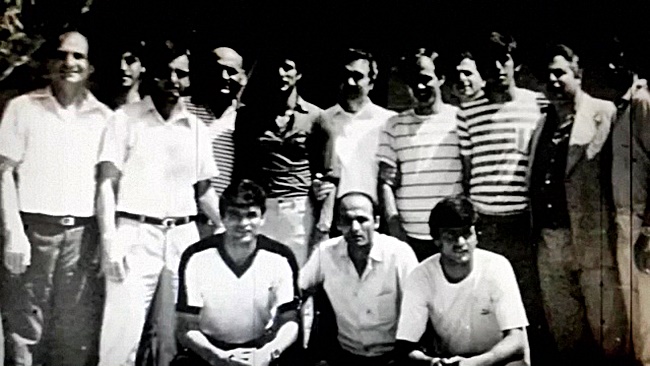
It was an unexpected event since both players came from a stratum that had connections to the Party and the communist government of the city and not from the lower class that was always being pointed at and suspected.
Then why did they escape when it was known that their families were privileged? And the first reason that comes to mind is, fear for themselves.
But did the two friends think about the fear of what could happen to their families?
In fact, it was an extraordinary event for the time that somewhat shocked the whole of Albania and the one-party system of the time.
But this was not the only one case, before two years earlier, in 1985, during the development of the European Weightlifting Championship in Poland, the duo Aleksander Kondo and Xhelal Suknici also escaped and never returned to Albania.
5.
After arriving in Tirana earlier and getting there by taxi individually, since the team bus from Shkodra had not come to pick them up), the leaders of the ruling party of the Albanian People’s Party were totally committed to condemning one of the best teams in Albanian football, Vllaznia, , which this time would disappoint even the person who helped its players with the necessary requirements of life, comrade of the ruling party, Muho Asllani!
Thus, the coach Astrit Hafizi cannot escape the punitive measures, due to lack of vigilance (as strange as it is ridiculous, as if Hafizi had the duty of a policeman and not of coaching the team), the captain Ferid Rragami, as well as the management staff, including the team manager.
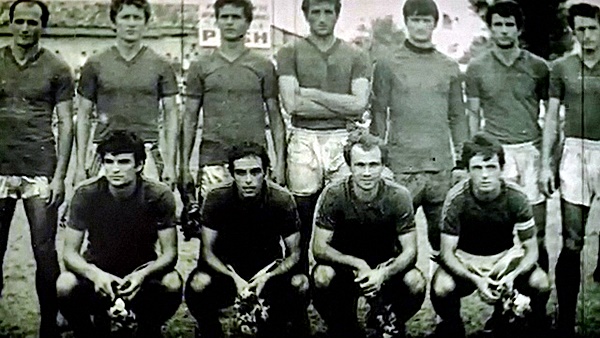
Vllaznia Team of the 80-ties
Excluded from football are Kujtim Shaba, Luan Vukatana who are sent to corrective work in the brick factory, Agim Maliqati and Ferid Rragami who is deported to the Pulti area as a literature and physical education teacher.
Coach Hafizi and his assistant Esat Rrakiqi are deported to Dugagjin, as well as Chief team Bahri Axhemi, former director of the “Prenk Jakova” Music School, an excellent and exemplary man.
Team doctor Zydi Coba is also deported to Kelmend! The families of Hoxha and Bershemi, of course, could not escape the drastic measures, interning them in the deepest and most isolated mountainous areas of Shkodra.
Months later, Bershemi and Hoxha became part of the Greek club “Panionios” and a year later, 1988, Bershemi’s name appeared with this team as the winner of the Greek Cup and nothing else after that what was expected of him as a promising and talented player.
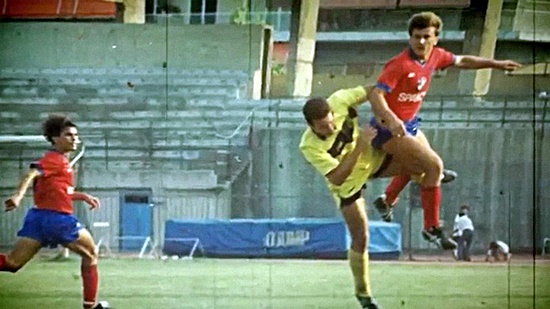
Meanwhile, Arvid Hoxha leaves for America, where he currently lives. Mr. Hoxha, despite the fact that he came from a privileged family, has tried several times to politically color his escape with the system of a thousand sins that Albania lived in, but the theft of the loot in the Helsinki Market remains completely unjustified, unqualified and completely condemnable in any type of system, democratic or totalitarian.
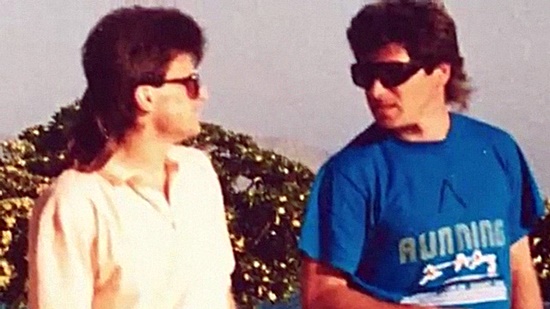
Considering the consequences and punishments that could have been avoided, it was not heroism, but fear, adventure and madness to escape the words of people who would label families in connection with the theft of loot by their sons in a foreign country. Then, the mass punishment for the sins of an individual was one of the madnesses of the system that will collapse just three years after this event that shows the two sides of a coin!
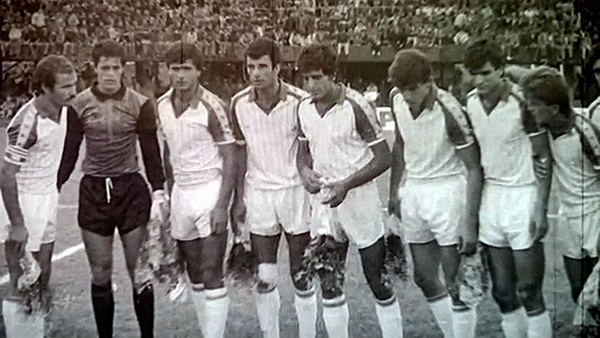
Vllaznia Team of 1986-1987
© By Pjerin Bj
New York, February 7-10, 2025
Visit our Blog here: https://pierosportvision.blogspot.com/
____________________
Vizion Plus + / Champions Hour in activity since 2013
Discover more from Sports Vision +
Subscribe to get the latest posts sent to your email.


